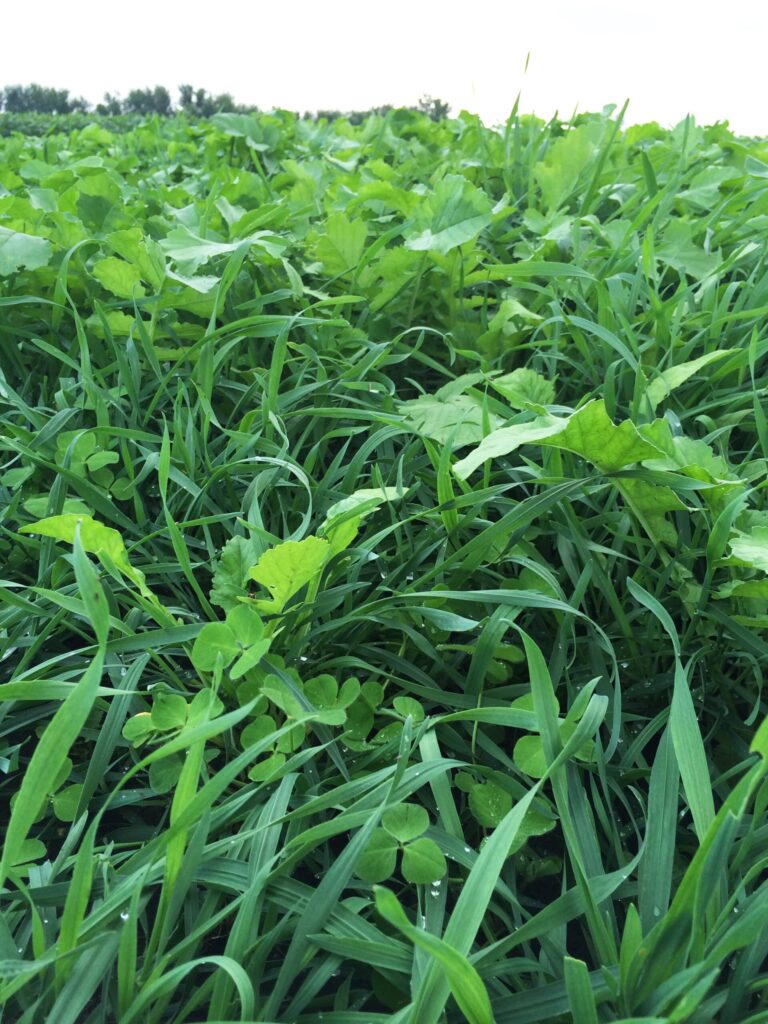Soil health stands as a cornerstone for successful forage production, serving as the foundational bedrock for crop nourishment and growth. Employing correct practices becomes pivotal in fostering robust soil health, encompassing factors such as ample air spaces, maintenance of aerobic conditions, substantial soil organic matter, and efficient drainage. Among the five essential principles governing soil health, ‘Soil Armor’ emerges as a critical aspect, shielding the soil from adverse weather conditions, such as wind and rain, via the implementation of cover crops.
Cover crops play a pivotal role in safeguarding and restoring soil health, especially in an era shifting focus towards Regenerative Agriculture—a paradigm that emphasizes harmonizing with nature rather than resisting it. The multifaceted advantages of cover crops extend to enriching the soil with organic matter, enhancing biological activity, fortifying soil structure, and certain species aiding in nitrogen fixation, erosion reduction, and augmenting nutrient availability for plants. Employing effective practices not only adapts modern farming towards eco-friendliness but also veers away from methods that deplete soil quality and organic content.
Options like Over-Winter Crops and tailor-made mixtures provided by the seed industry address the challenges posed by shifting environmental and climatic conditions that impact forage production. Customized mixtures, designed to align with specific farming techniques and soil attributes, effectively scavenge nutrients like nitrogen from the soil, proposing a sustainable alternative to conventional farming practices.
The extensive advantages of cover crops continually redefine agricultural practices, fostering an environmentally sustainable approach towards achieving similar farming objectives. Furthermore, these practices unlock opportunities for additional funding through schemes like Countryside Stewardship and the Sustainable Farming Incentive in the UK.
With mounting pressure on forage production to harmonize with the environment for sustained agriculture and wildlife preservation, seed companies play a pivotal role in proactively addressing evolving demands. This necessitates the establishment and distribution of varieties and species capable of thriving in dynamic and evolving conditions.








